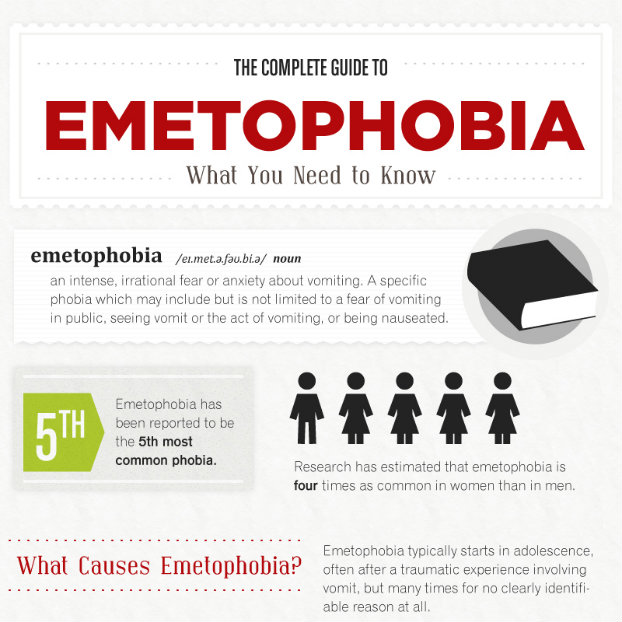 Most children will experience fear and worry at some point. Parents want to protect their children from these negative feelings as much as possible. Unfortunately, people don’t always know how to help their child with an anxiety disorder.
Most children will experience fear and worry at some point. Parents want to protect their children from these negative feelings as much as possible. Unfortunately, people don’t always know how to help their child with an anxiety disorder.
Parents of an emetophobic may have even more difficulty finding ways to handle their child’s illness. Because Emetophobia does not receive a lot of public attention, it can be difficult to find effective treatment options. Some doctors and psychologists do not recognize Emetophobia as a disorder because of the lack of literature on the topic.
Curing an Anxious Child with Emetophobia
One study from 2006 examined the effectiveness of treatment on a young girl with a history of anxiety problems. In addition to this, she had a strong fear of vomiting or being in a situation in which someone else would vomit. She was also afraid of feeling nauseated, and she often had anxiety-related stomach pains.
The child’s health was further jeopardized by her reluctance to eat certain foods. She felt that eating increased her chance of vomiting, so she began to limit her own diet. This led her to lose weight she could not afford to lose.
To treat the child’s phobia and anxiety, a variety of treatments were used. Most of the techniques were derived from Cognitive-Behavioral Therapy, which focuses on eliminating negative, unproductive thinking patterns that can lead to harmful behaviors.
The child in the study learned to replace her unreasonable worries with more positive thoughts. A child can be shown how to confront his or her fears and think of them in a less stressful context.
The therapist also helps to reduce the child’s irrational fear. In the study, the girl was challenged to picture various scenarios that caused her anxiety. The longer she continued her treatment, the less anxiety she said she felt. The positive effects of the treatment were still present after 20 weeks, and the girl was steadily getting back to a healthy weight.
The Importance of Parental Involvement
Another important aspect of treatment was getting the girl’s parents involved. The parents in the study were taught to improve their own reactions to their daughter. They learned not to encourage her complaints. This is important because giving attention to a child when he or she is dwelling on negative thoughts sends the wrong message.
It is thought to be best for parents to ignore the child’s behaviors that promote anxious thoughts. Generally, if the child seeks reassurance in a harmless situation that makes him or her anxious, the parents should not react. If anything, they are encouraged to remind the child to use the techniques that are taught by the therapist.





